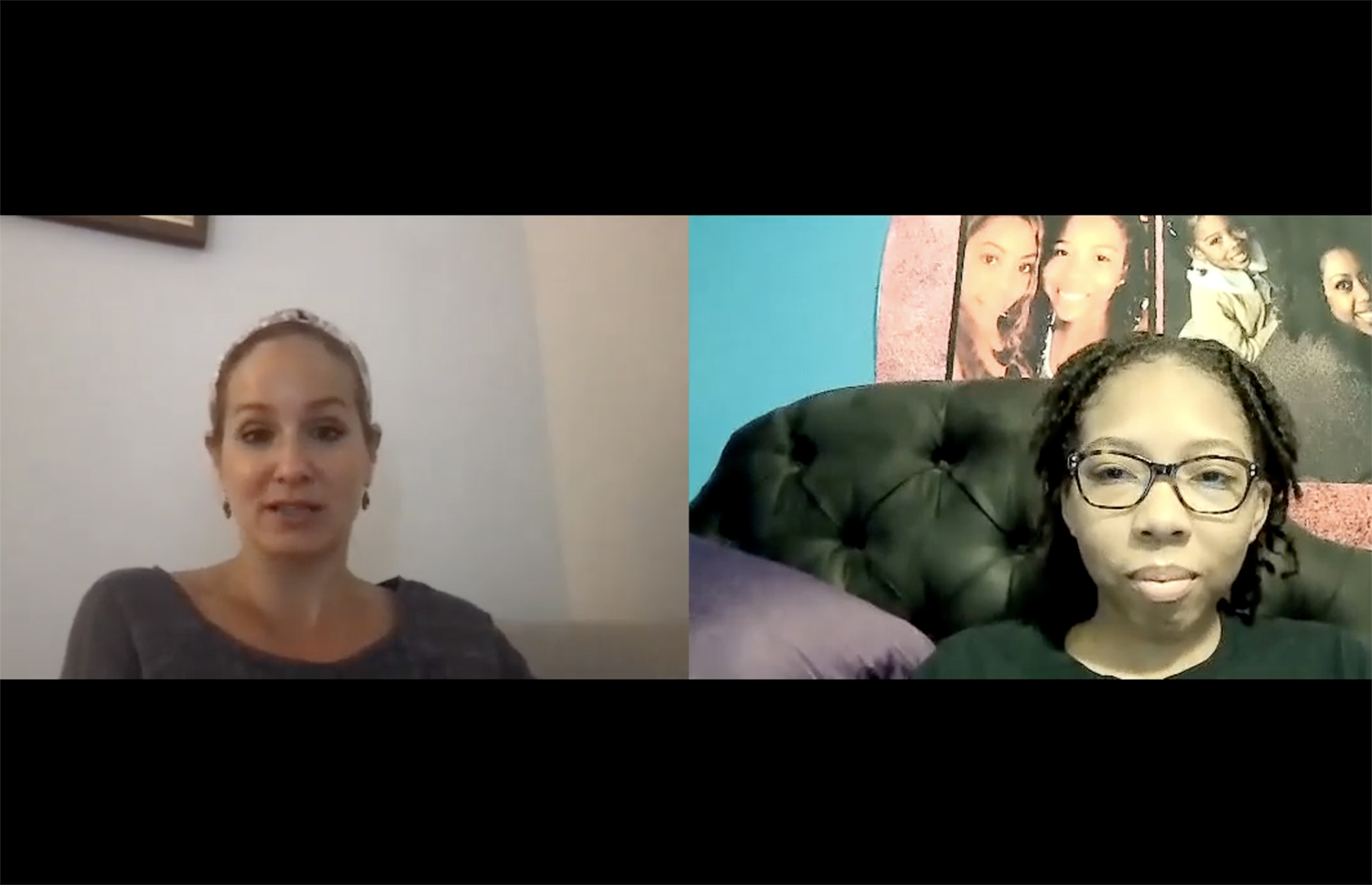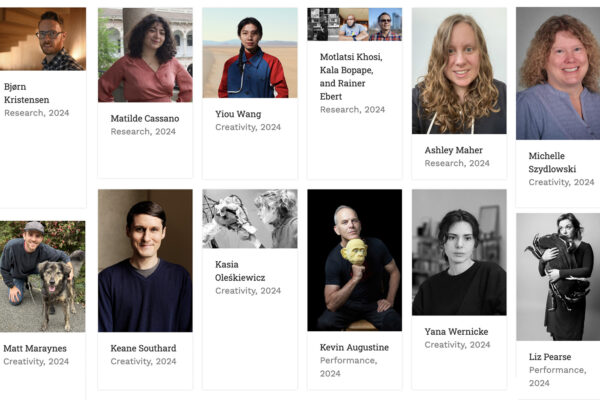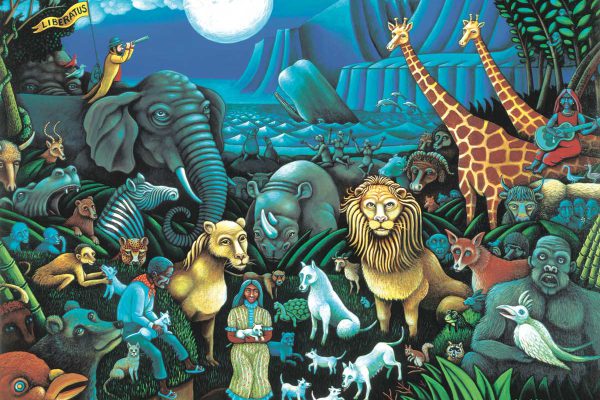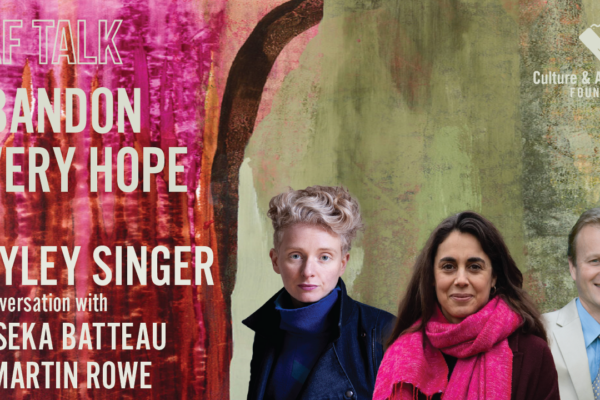September 10, 2021 saw the tenth anniversary of the release of the documentary film Vegucated—offering an occasion to talk to its creator Marisa Miller Wolfson, a two-time grantee (2009, 2011), on what she’s been up to since. Columbia University Navab Fellow and CAF intern Makenna Cherry reports.
I started off by asking Marisa very broadly about what had happened to her since the film’s release. She had to think about this, but began with, “The big difference is I’ve been being a mom.” Vegucated came out on DVD in January 2012, her son was born in October of that year and her daughter in 2015. Marisa also wrote The Vegucated Family Table (2020), a cookbook that includes tips on feeding vegan children.
And that’s not all. In the works is Laura Joyce Finds Her Voice, a picture book focusing on a shy vegan kindergartner in a non-vegan classroom who connects with the class goldfish and as a result becomes confident enough to speak out on veganism to her classmates. Plant-Powered Kid is another picture book in development that Marisa describes as a “surreptitious, ‘Why vegan?’ book” that’s also written for children.
When I asked Marisa about her shift in focus from adult vegans to children, Marisa acknowledged that “the cultures of parenting and veganism don’t often mix,” which can make a vegan parenting space hard to find. Further, she explained, there aren’t a lot of vegan books for children that aren’t “Why vegan?” and that the community needs more books about children navigating veganism. In addition, she observed, the books that are “Why vegan?” can be graphic and tough for parents and educators. Marisa hopes to fill two voids in the vegan space: a documentary for parents and or healthcare providers about the benefits of veganism for children, and appropriate media for kids around the “Why?” of being vegan. Her biggest challenge now, she admits, is figuring out whether to aim her projects at parents or children: “Veganism will never be mainstream unless people feel like it’s safe psychologically and physiologically for children.”
I asked Marisa whether she kept in touch with Ellen, Brian, or Tesla, the characters in Vegucated who go on a vegan diet for six weeks. Marisa revealed that she’s mostly kept in touch with Brian and Tesla and less so with Ellen. Brian is married to a vegan animal rights advocate and lives with his wife and two children in California. Tesla is currently a realtor in Long Island and is married with a daughter also named Tesla. Ellen is a playwright whose plays have featured in a few festivals. Marisa reported that all three had been vegan or vegetarian on and off since Vegucated’s release.
When I asked Marisa if she’d have changed anything about the film, she told me that her biggest regret was not raising money ahead of making the film so she could afford the equipment and crew to produce a documentary in higher definition and get help with distribution. She told me she wished she’d taken a film class and hired an entertainment lawyer who knew more about the process and specifics of creating a documentary. She reflected: “There’s a rule in filmmaking that you can get two out of three things. You can’t make a film that’s really good, and fast, and cheap. You get two out of the three, but you can’t get all three, and I went for cheap and good.”
I wondered whether Marisa felt that the issues highlighted in Vegucated had changed or not. We agreed that the realities of factory farming hadn’t shifted much in the past decade, but Marisa thought people knew more about veganism in 2021 than in 2005 when she filmed Vegucated. She also observed that she herself had evolved beyond what she called “white veganism” and regretted the film hadn’t covered more of the economic challenges, food policy, and politics (such as food deserts) that made it hard for people to vegan. We also talked about her favorite vegan youth activists: 12-year-old vegan chef Omari McQueen and 14-year-old climate activist Genesis Butler.
Finally, I asked Marisa about what had been positive and what had been challenging about vegan parenthood. She replied that it had been very rewarding to know she was enabling her children to contribute positively to the climate crisis and connect with animals in a way that non-vegan kids might not be able to. She confessed that navigating food with her children could be difficult because they are picky eaters. “Before you’re a parent you have all kinds of opinions about how you’re going to parent,” she said. “I was, like, ‘Oh, whatever I do, I’m not going to have a bully and I’m not going to have a picky eater.’ Well, I don’t have a bully, but I certainly have a picky eater.”
Marisa emphasized that connecting her children to a vegan community was vital, so they’d know they weren’t alone. I asked if she had any advice for would-be parents about raising a vegan child: “Read Nourish by Brenda Davis and Reshma Shah and The Plant-Based Baby and Toddler by Whitney English and Alexandra Caspero,” she said. “Expect to be challenged, even by doctors. There are stories in the media of vegan children who aren’t thriving, but it’s not about veganism, it’s about neglectful, negligent, and uninformed parents. The more informed you are, the more confident you will be in making a choice for yourself.” She added: “Feel proud knowing that you’re setting your child up for healthy habits and in knowing they’ve helped create the kind of planet that they want to live on. Kids want to feel like superheroes; they want to feel like they’re protecting the planet; they want to feel healthy and strong. Being a vegan kid makes them feel a little bit like a superhero. That’s what I’m going to write about in my book, Plant-Powered Kid.”





